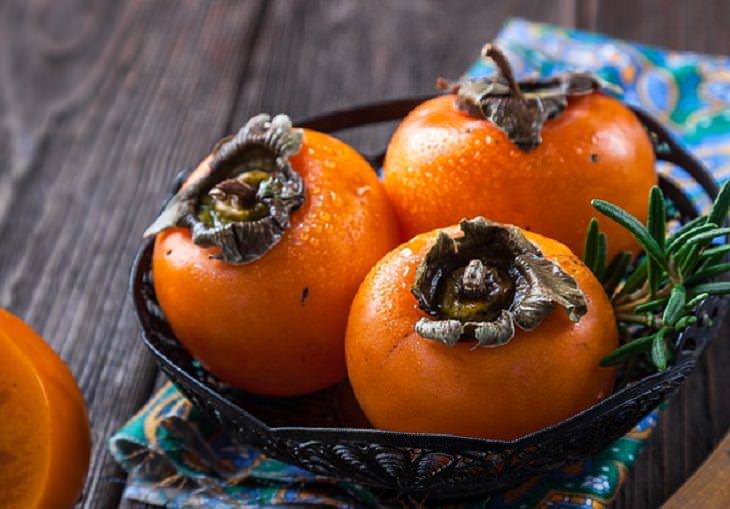
Benefits by Faith Seke
- Persimmons are a good source of vitamin C which protect cells from damage and help combat body inflammation. They are also a good source of manganese which assists with blood clotting. Persimmons are also a good source of thiamin, riboflavin, folate, magnesium and phosphorus.
- Persimmons are also a good source of antioxidants, hence they help in reducing the risk of diseases such as cancer, stroke and cardiovascular disorder. Persimmons are high-fiber fruits that can help in lowering LDL cholesterol levels
Benefits by Julia Rocha
-
- Persimmon helps maintain heart health as it contains antioxidants, which reduce the risk of heart disease, these substances prevent the development of coronary atherosclerosis, which is the accumulation of fatty plaque in the arteries, in addition these compounds lower blood pressure and reduce the body’s bad cholesterol (LDL), which are risk factors for the onset of cardiovascular disease.
- Persimmon has many fibers in its composition, so it is good for the intestine, because the fibers are responsible for giving more consistency to the fecal cake, which facilitates the elimination of feces, but it is important to drink plenty of water for this benefit to occur.
- Persimmon has beta-carotene, which helps maintain and regulate blood pressure and is a source of potassium, a nutrient that expands blood vessels and relaxes muscles, which also controls the pressure exerted by the blood against the walls of the arteries.
→ Persimmon: How much should you have? Experts weigh in.
→ Love Persimmon? Get nutritional facts, tips from health experts, and more
Benefits by Christos Sittas
- Persimmon contains a variety of phytochemical compounds including tannins, carotenoids, catechins, and phenolic compounds that possess antimutagenic, cardioprotective, and anticarcinogenic properties (Butt et al. 2015).





